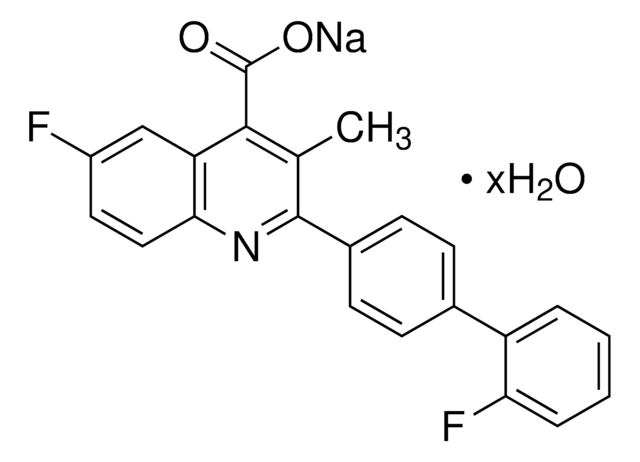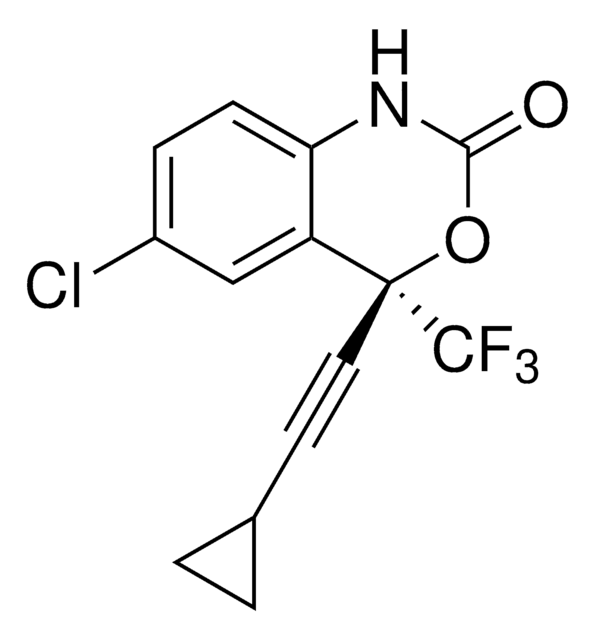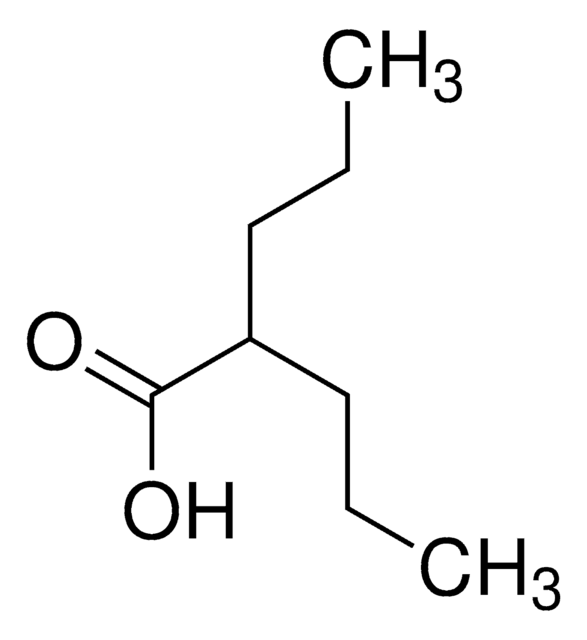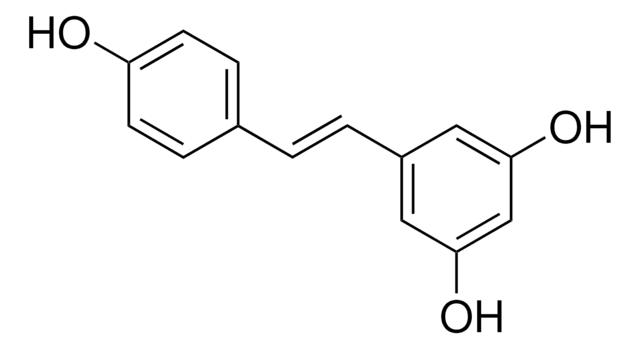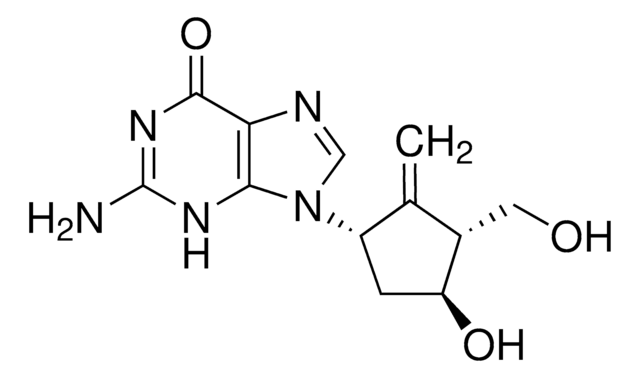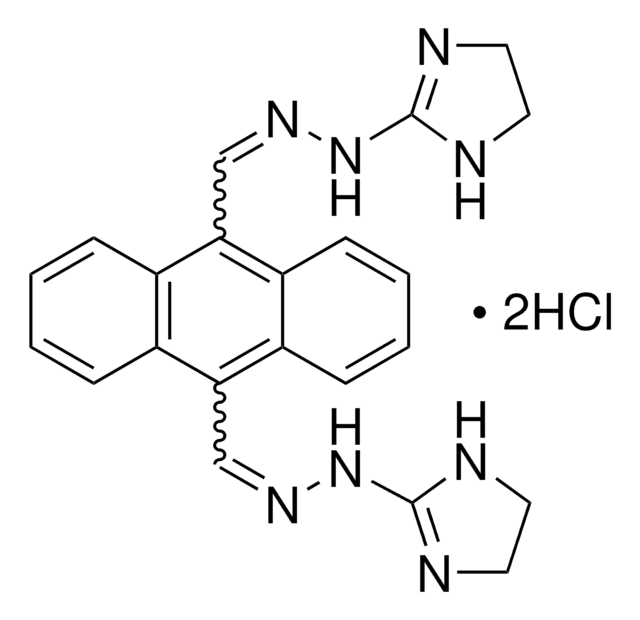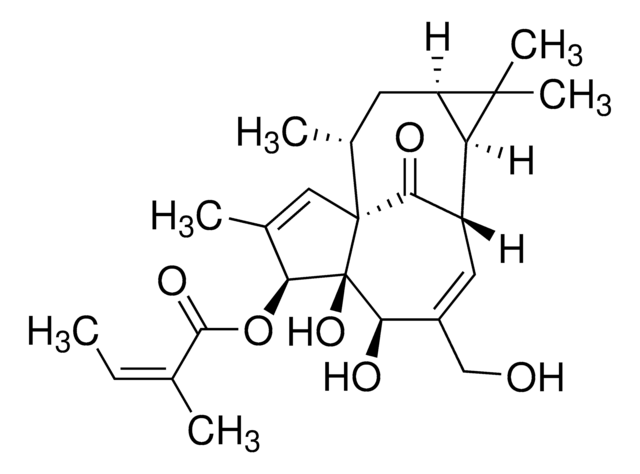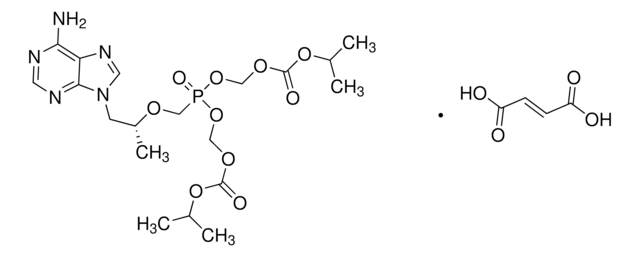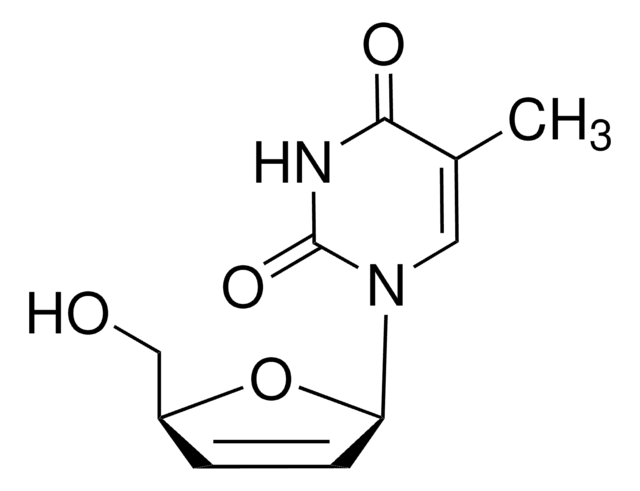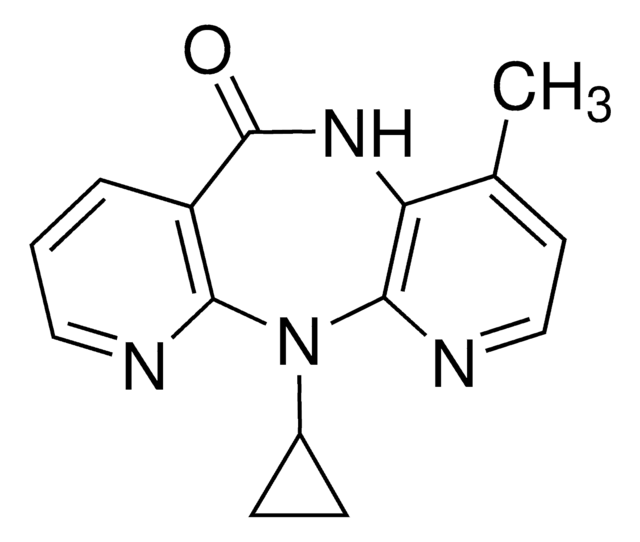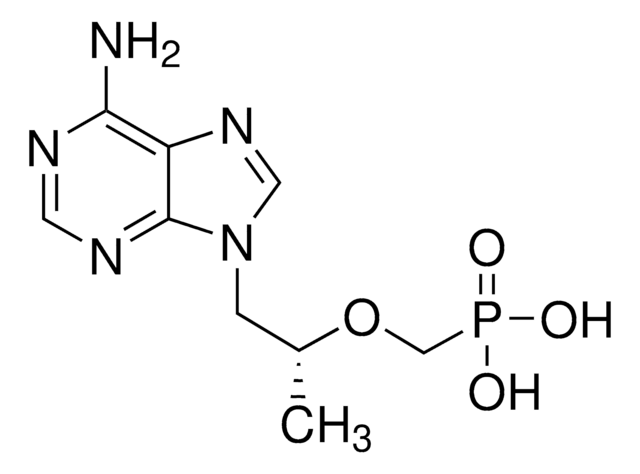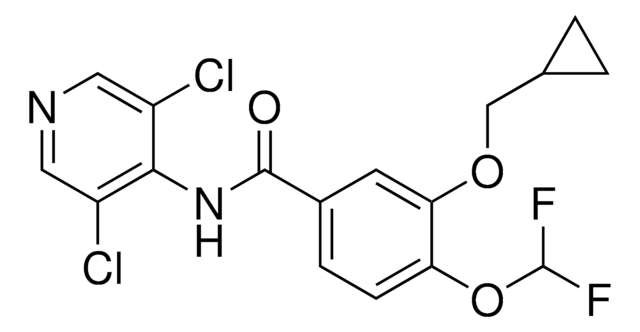SML0536
Efavirenz
≥98% (HPLC)
Synonym(s):
Efavirenz, (4S)-6-Chloro-4-(2-cyclopropylethynyl)-1,4-dihydro-4-(trifluoromethyl)-2H-3,1-benzoxazin-2-one
About This Item
Recommended Products
Assay
≥98% (HPLC)
form
powder
optical activity
[α]/D -90 to -100°, c = 1 in methanol
color
white to beige
solubility
DMSO: 15 mg/mL, clear
storage temp.
−20°C
SMILES string
ClC1=CC=C2C([C@@](C#CC3CC3)(C(F)(F)F)OC(N2)=O)=C1
InChI
1S/C14H9ClF3NO2/c15-9-3-4-11-10(7-9)13(14(16,17)18,21-12(20)19-11)6-5-8-1-2-8/h3-4,7-8H,1-2H2,(H,19,20)/t13-/m0/s1
InChI key
XPOQHMRABVBWPR-ZDUSSCGKSA-N
Looking for similar products? Visit Product Comparison Guide
General description
Application
- to assess its anti-porcine endogenous retrovirus (PERV) activity
- in cytotoxicity assay
- to investigate the solute-solvent effects of efavirenz by means combined time-dependent density functional theory (TD-DFT) and spectroscopic calculations
Biochem/physiol Actions
Features and Benefits
Legal Information
Signal Word
Danger
Hazard Statements
Precautionary Statements
Hazard Classifications
Acute Tox. 4 Oral - Aquatic Acute 1 - Aquatic Chronic 1 - Repr. 1B
Storage Class Code
6.1C - Combustible acute toxic Cat.3 / toxic compounds or compounds which causing chronic effects
WGK
WGK 3
Flash Point(F)
Not applicable
Flash Point(C)
Not applicable
Certificates of Analysis (COA)
Search for Certificates of Analysis (COA) by entering the products Lot/Batch Number. Lot and Batch Numbers can be found on a product’s label following the words ‘Lot’ or ‘Batch’.
Already Own This Product?
Find documentation for the products that you have recently purchased in the Document Library.
Customers Also Viewed
Our team of scientists has experience in all areas of research including Life Science, Material Science, Chemical Synthesis, Chromatography, Analytical and many others.
Contact Technical Service